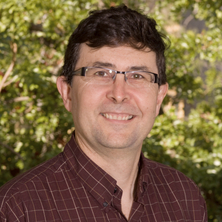Understanding the mechanism of two important cytochrome P450 catalysed reactions: dehydrogenation and C-C cleavage (2014-2016)
Abstract
Cytochromes P450 are enzymes that play key roles in drug metabolism and biosynthesis. P450s often catalyse hydroxylation but also carry out important transformations such as dehydrogenation or carbon-carbon bond cleavage. Such reactions are pivotal in many biological pathways. This work will elucidate the mechanism of these transformations and the factors that facilitate their occurrence. This will mainly entail the synthesis of small organic mechanistic probes and determining the structure and stereochemistry of the product of enzymic oxidation. Understanding these mechanisms will allow us to predict when such reactions will occur, enabling their utilisation in for example drug design in the avoidance of the formation of toxic metabolites.

